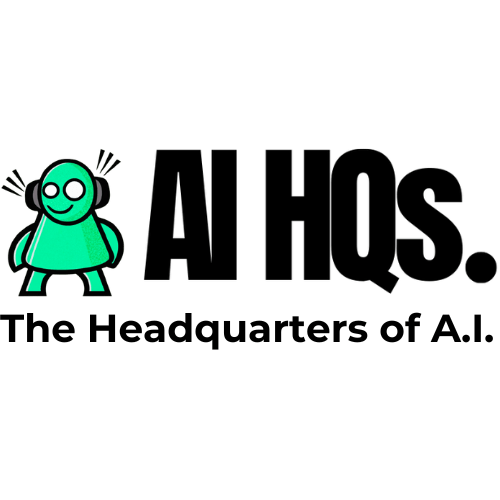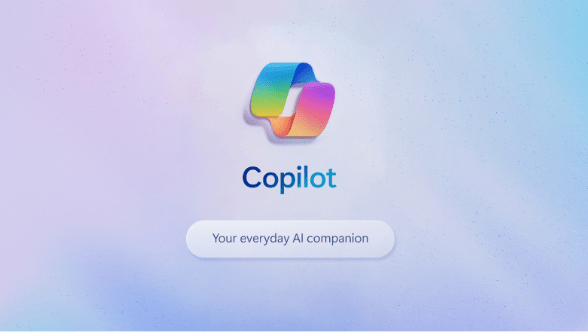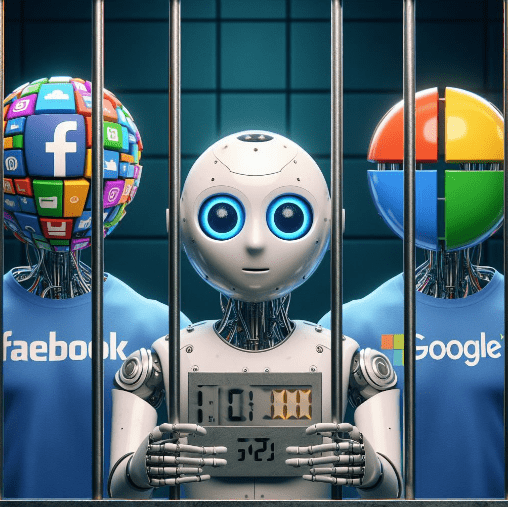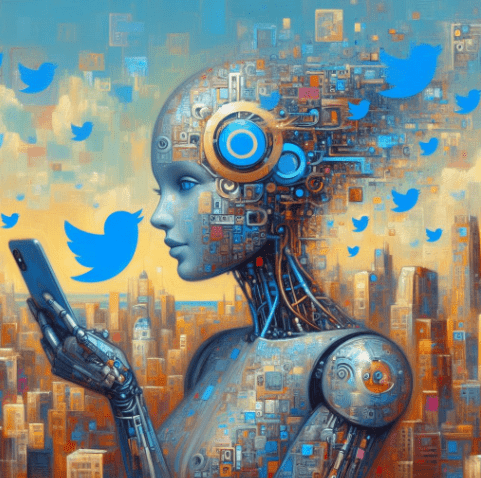Bing Chat is now Microsoft Copilot
Microsoft has recently announced a major transformation in its AI landscape, rebranding its famed Bing Chat as “Microsoft Copilot.” This shift is part of a broader initiative to streamline and unify various Copilot experiences across Microsoft’s ecosystem. The renaming aligns Bing Chat with an array of Copilot siblings, each catering to specific business functions.
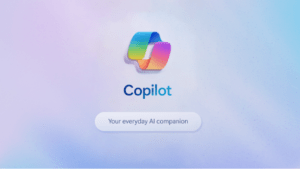
This rebranding hasn’t come without its fair share of skepticism. Some users find Microsoft’s Copilot nomenclature somewhat confusing, as it encompasses a range of applications like GitHub Copilot, Dynamics 365 Copilot, Copilot in Windows, Microsoft Security Copilot, and Microsoft 365 Copilot. Despite Microsoft’s assertion that Copilot is an effort to unify experiences, users like Amit Malik express concerns about increasing confusion rather than simplification.
The Copilot branding seeks to bring together a diverse array of functionalities into one cohesive platform. Microsoft claims that Copilot will soon be an all-encompassing assistant, understanding user contexts on the web, PCs, and at work. This ambitious vision aims to deliver tailored skills across work and personal life, providing users with assistance whenever and wherever they need it.
In addition to the rebranding, Microsoft is embracing OpenAI’s latest advancements, particularly GPTs (Generative Pre-trained Transformers). Microsoft Copilot Studio, a new addition to the Copilot family, focuses on creating tailored versions of Copilot for specific tasks using GPTs. This move opens up new opportunities for both citizen and professional developers, allowing for more personalized and user-centric experiences.
The Microsoft Copilot associated with Bing Chat is set to become generally available on December 1, marking a significant milestone in the evolution of Microsoft’s AI offerings. Simultaneously, Microsoft has unveiled the next generation of AI updates across its business applications portfolio. The highlight is the launch of Microsoft Dynamics 365 Copilot, an AI-powered assistant designed to provide interactive assistance across various business functions.
This innovation is a response to the growing desire among workers to leverage AI in reducing repetitive tasks. Dynamics 365 Copilot empowers organizations to enhance worker efficiency by automating tedious tasks in sales, service, marketing, operations, and supply chain roles.
Sales teams can significantly reduce time spent on clerical tasks. Dynamics 365 Copilot aids in drafting email responses and creating email summaries of Teams meetings in Outlook, incorporating details from CRM records. With up to 66% of a seller’s day spent on emails, this feature promises a substantial boost in customer interaction time. Microsoft emphasizes the transformative potential of generative AI in business applications, aiming to bring the latest AI breakthroughs to every line of business. Dynamics 365 Copilot, scheduled for general availability on December 1, represents a significant leap forward in integrating AI into everyday business operations.
At the Microsoft Ignite 2023 conference, the company announced a slew of innovations across Microsoft Copilot, positioning it as the universal assistant that spans web contexts, PCs, and work environments. The announcement emphasizes Microsoft’s commitment to providing a seamless Copilot experience for everyone and every task.
On November 1, 2023, Copilot for Microsoft 365 became generally available for enterprises. Notable names like Visa, BP, Honda, Pfizer, and Chevron, along with partners such as Accenture, EY, KPMG, Kyndryl, and PwC, have already embraced Copilot. The New Work Trend Index data indicates that Copilot enhances productivity, creativity, and time savings, with 77% of users expressing a reluctance to give up this newfound assistance.
As part of the Copilot for Microsoft 365 package, Microsoft introduces a range of personalization features, sophisticated mathematical and analysis capabilities, and full participation in collaboration. These updates aim to make Copilot more accessible and user-friendly, providing tailored responses based on individual roles and preferences. Microsoft isn’t stopping at rebranding and updates; it’s pushing the boundaries further with the introduction of Microsoft Copilot Studio. This no-code solution allows businesses to create custom copilots or integrate ChatGPT AI chatbots effortlessly.
Designed to extend the capabilities of Microsoft 365 Copilot, Copilot Studio enables businesses to customize Copilot in Microsoft 365. It allows the inclusion of datasets, automation flows, and even custom copilots outside the Microsoft Graph. With a user-friendly GUI, IT admins can effortlessly link new data sources, create and publish custom copilots, and monitor usage and analytics.
Jared Spataro, Head of Modern Work and Business Applications at Microsoft, states that Copilot Studio simplifies the process of building AI assistants and connecting them to key business systems. The tool supports natural language and graphical interfaces, making conversation design easy and iterative. Copilot Studio also serves as a hub for integrating custom ChatGPT chatbots created using OpenAI’s GPT platform. This integration underscores the strategic partnership between OpenAI and Microsoft, emphasizing a commitment to supporting GPTs for enhanced technology leverage within Copilot Studio.
The announcement of Copilot Studio is a testament to Microsoft’s dedication to providing users with powerful, customizable tools that enhance their AI experiences. As Copilot evolves, its integration with various Microsoft applications showcases its versatility and adaptability to diverse business needs. Here’s a snapshot of Copilot in action across Microsoft’s ecosystem:
Microsoft plans to introduce new Copilot experiences in Teams meetings, transforming it into a meeting assistant. Copilot can capture specific content during meetings, take collaborative notes, and even provide intelligent recaps to keep the entire organization on the same page. In early 2024, Copilot in Outlook will assist users in preparing for meetings by summarizing relevant information, drafting responses to emails, and even creating agenda items. This integration aims to optimize productivity by automating routine tasks, allowing users to focus on high-value work.
Copilot in Microsoft Edge is set to revolutionize web browsing. It will assist users in researching topics, summarizing articles, and even generating written content based on user input. This integration aligns with Microsoft’s vision of making Copilot an omnipresent assistant across different contexts.
Microsoft’s long-term vision involves integrating Copilot into the Windows operating system, making it an integral part of the user experience. Users can expect Copilot to assist with various tasks, from drafting documents to providing quick answers to queries, seamlessly integrating AI capabilities into everyday computing. Building on the success of GitHub Copilot, Microsoft aims to enhance the collaborative coding experience. Copilot in GitHub will continue to assist developers by generating code snippets, offering suggestions, and streamlining the coding process. The integration of Copilot into GitHub has received positive feedback from the developer community, highlighting its potential to reshape coding workflows.
Microsoft’s commitment to security is evident in the introduction of Security Copilot. This variant focuses on enhancing cybersecurity measures by providing intelligent threat detection, risk analysis, and automated response capabilities. Security Copilot aims to be a vigilant assistant in safeguarding digital environments, leveraging AI to stay ahead of evolving security threats.
The integration of Copilot across Microsoft 365 applications brings a consistent and intelligent experience to users. Whether in Word, Excel, PowerPoint, or other productivity tools, Copilot aims to assist with content creation, data analysis, and other tasks, optimizing workflows and boosting user productivity.
Recognizing the potential impact of AI in education, Microsoft is exploring ways to integrate Copilot into educational platforms. This includes assisting students with research, providing learning support, and facilitating collaboration among educators. The goal is to create a seamless learning experience that leverages AI to enhance educational outcomes.
As Microsoft Copilot continues to evolve, several challenges and opportunities lie ahead. The integration of AI into various aspects of work and personal life raises questions about privacy, data security, and ethical considerations. Microsoft acknowledges these concerns and emphasizes a commitment to responsible AI practices.
The openness of Microsoft Copilot Studio, allowing businesses to create custom copilots and integrate GPT-based chatbots, presents exciting opportunities for innovation. Businesses can tailor AI experiences to their specific needs, creating intelligent assistants that align with their unique workflows and requirements.
However, the challenge lies in ensuring that customization doesn’t compromise security and ethical standards. Striking the right balance between flexibility and control is crucial to fostering a sustainable and responsible AI ecosystem.
As Microsoft Copilot becomes an integral part of the digital landscape, it will be interesting to observe how users, businesses, and developers adapt to this transformative technology. The success of Copilot hinges not only on its technical capabilities but also on its ability to address user needs, maintain trust, and navigate the complex landscape of AI ethics and regulations.
Microsoft’s ambitious vision for Copilot as the universal assistant for every task and context sets a high bar. The coming months and years will reveal the extent to which Copilot reshapes the way we work, collaborate, and interact with technology. In a rapidly evolving digital landscape, Microsoft Copilot stands as a testament to the ongoing fusion of AI and everyday experiences, inviting users to embrace a new era of intelligent assistance. For all my daily news and tips on AI, Emerging technologies at the intersection of humans, just sign up for my FREE newsletter at www.robotpigeon.beehiiv.com
